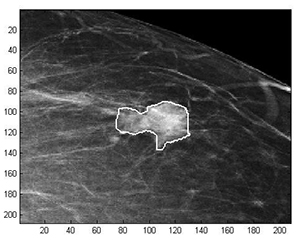Latest News Archive
Please select Category, Year, and then Month to display items
28 October 2024
|
Story Zingaphi Mdletshe
|
Photo Supplied
 Kovsie ACT volunteers undergo leadership and skills training, preparing them to engage in community service and develop sustainable solutions to societal challenges beyond university life.
Kovsie ACT volunteers undergo leadership and skills training, preparing them to engage in community service and develop sustainable solutions to societal challenges beyond university life.
The University of the Free State’s (UFS) Kovsie ACT office continues to foster a spirit of humanity among students through a leadership and skills development training initiative that is aimed at not only developing them as volunteers but also as conscientious individuals who understand the value of helping others.
“The leadership and skills development training is a platform that the ACT office utilises to ensure that volunteers are equipped with the necessary skills needed to fulfil their duties as Central ACT Committee members, thereby facilitating a smooth term,” said Teddy Sibiya, Senior Assistant Officer at Kovsie Support Services. “We aim to impart knowledge that will be beneficial during their term and beyond their involvement with the ACT office.”
Touching on how the training aligns with the broader goals of the Kovsie ACT Volunteer Programme for the term 2024/2025, Sibiya emphasised that sustainability has always been at the heart of Kovsie ACT and that their activities provide opportunities for students to engage in community service and participate in environmental initiatives to assist civil society organisations. The programme also encourages students to become active global citizens by addressing transnational issues such as food insecurity and socio-economic challenges.
“I am excited about the opportunity to be part of a movement that influences not just the lives of students but also reaches beyond the university, promoting innovative and sustainable solutions on a larger scale,” said Raylene Bussack, a Central ACT Committee volunteer. “My goal is to inspire and empower others to join us in this vital work to make a lasting difference together.”
In addition to leadership training, Kovsie ACT offers various programmes designed to enhance students' skills in areas such as communication, teamwork and project management. These skills are essential for their roles within Kovsie ACT and for their future careers. By participating in community service projects, students build valuable relationships and gain practical experience that will benefit them upon graduation. The initiative ultimately aims to create a culture of giving back among students while enriching their university experience.
Mathematical methods used to detect and classify breast cancer masses
2016-08-10
 Examples of Acho’s breast mass
Examples of Acho’s breast mass
segmentation identification
Breast cancer is the leading cause of female mortality in developing countries. According to the World Health Organization (WHO), the low survival rates in developing countries are mainly due to the lack of early detection and adequate diagnosis programs.
Seeing the picture more clearly
Susan Acho from the University of the Free State’s Department of Medical Physics, breast cancer research focuses on using mathematical methods to delineate and classify breast masses. Advancements in medical research have led to remarkable progress in breast cancer detection, however, according to Acho, the methods of diagnosis currently available commercially, lack a detailed finesse in accurately identifying the boundaries of breast mass lesions.
Inspiration drawn from pioneer
Drawing inspiration from the Mammography Computer Aided Diagnosis Development and Implementation (CAADI) project, which was the brainchild Prof William Rae, Head of the department of Medical Physics, Acho’s MMedSc thesis titled ‘Segmentation and Quantitative Characterisation of Breast Masses Imaged using Digital Mammography’ investigates classical segmentation algorithms, texture features and classification of breast masses in mammography. It is a rare research topic in South Africa.
Characterisation of breast masses, involves delineating and analysing the breast mass region on a mammogram in order to determine its shape, margin and texture composition. Computer-aided diagnosis (CAD) program detects the outline of the mass lesion, and uses this information together with its texture features to determine the clinical traits of the mass. CAD programs mark suspicious areas for second look or areas on a mammogram that the radiologist might have overlooked. It can act as an independent double reader of a mammogram in institutions where there is a shortage of trained mammogram readers.
Light at the end of the tunnel
Breast cancer is one of the most common malignancies among females in South Africa. “The challenge is being able to apply these mathematical methods in the medical field to help find solutions to specific medical problems, and that’s what I hope my research will do,” she says.
By using mathematics, physics and digital imaging to understand breast masses on mammograms, her research bridges the gap between these fields to provide algorithms which are applicable in medical image interpretation.